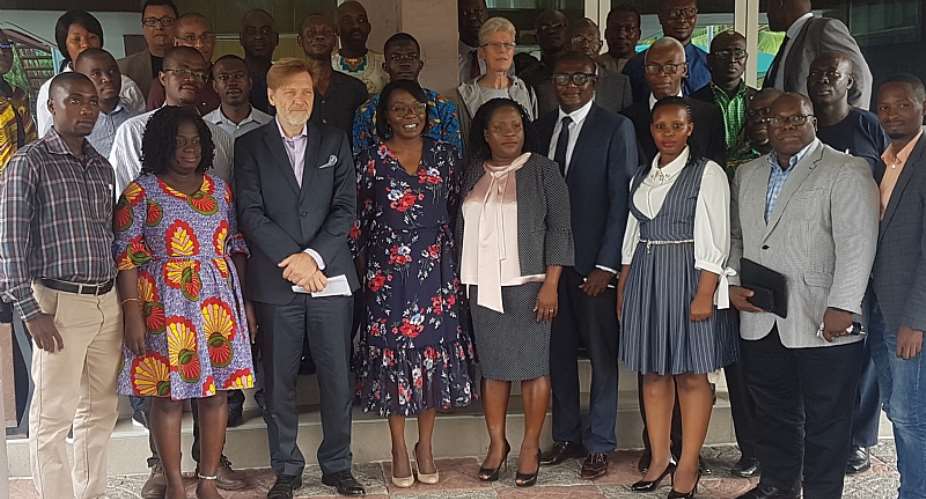The Volta River Authority (VRA) Academy, has commenced a training programme on the processes of social impact assessment in hydropower projects.
The five-day training programme will also focus on the impact of hydropower on health, resettlement and the livelihoods of the community.
The training is being organised by the VRA in collaboration with the International Centre for Hydro power, the World Bank Group, the Environmental Protection Agency and the Water Resources Commission with finance from NORAD.
The event brought together participants from Anglofone countries- Ghana, Uganda, Zambia and Sierra Leone to share ideas to improve skills for energy professionals.
Mr Eric Mensah Bonsu, the Chief Learning Officer, VRA Academy, said the training would focused on the social impact of the construction of dams on the environment and as well as come out with sustainable ways to mitigate the impact.
Mr Bonsu said the construction of the Volta Lake had several consequences on the community in terms of settlement and their livelihood.
He said the programme would also overview at the processes when constructing a dam and see how best to develop sustainable measures to mitigate the impact on the environment.
According to him, construction of dams serve as a renewable energy and that Ghana was moving to clean and renewable energy platform, hence the need to collaborate with partners to address the phenomenon.
He said VRA had a Sustainable Development Unit and Corporate Social Responsibility outfit to respond to the needs of the community in an efficient and effective manner.
He stressed that VRA had a Resettlement Trust Fund for the community and spends over $500,000 yearly on resettlement, adding that the programme would enable the countries share and learn experience on measures in addressing the impact of hydropower on the environment.
Madam Carole Rosenlund, the Head of Africa Sector, International Centre for Hydropower, on her part said the outfit prioritises skill development for hydropower professionals.
She stated that it was necessary to address the skills gap and build competence because the technological roles were changing.
Madam Carole Rosenlund said the sector was becoming international and there was the need to work collectively to address the social impact of hydropower in communities.





 SSNIT must be managed without gov’t interference – Austin Gamey
SSNIT must be managed without gov’t interference – Austin Gamey
 Ejisu by-election could go either way between NPP and independent candidate — Gl...
Ejisu by-election could go either way between NPP and independent candidate — Gl...
 We never asked ministers, DCEs to bring NPP apparatchiks for returning officer r...
We never asked ministers, DCEs to bring NPP apparatchiks for returning officer r...
 No one denigrated the commission when you appointed NDC sympathizers during your...
No one denigrated the commission when you appointed NDC sympathizers during your...
 Used cloth dealers protests over delayed Kumasi Central Market project
Used cloth dealers protests over delayed Kumasi Central Market project
 A/R: Kwadaso onion market traders refuse to relocate to new site
A/R: Kwadaso onion market traders refuse to relocate to new site
 Dumsor: Corn mill operators at Kaneshie market face financial crisis
Dumsor: Corn mill operators at Kaneshie market face financial crisis
 Jamestown fishermen seek support over destruction of canoes by Tuesday's heavy d...
Jamestown fishermen seek support over destruction of canoes by Tuesday's heavy d...
 Election 2024: EC to commence voter registration exercise on May 7
Election 2024: EC to commence voter registration exercise on May 7
 Public schools rebranding: We’re switching to blue and white, we’re painting all...
Public schools rebranding: We’re switching to blue and white, we’re painting all...
